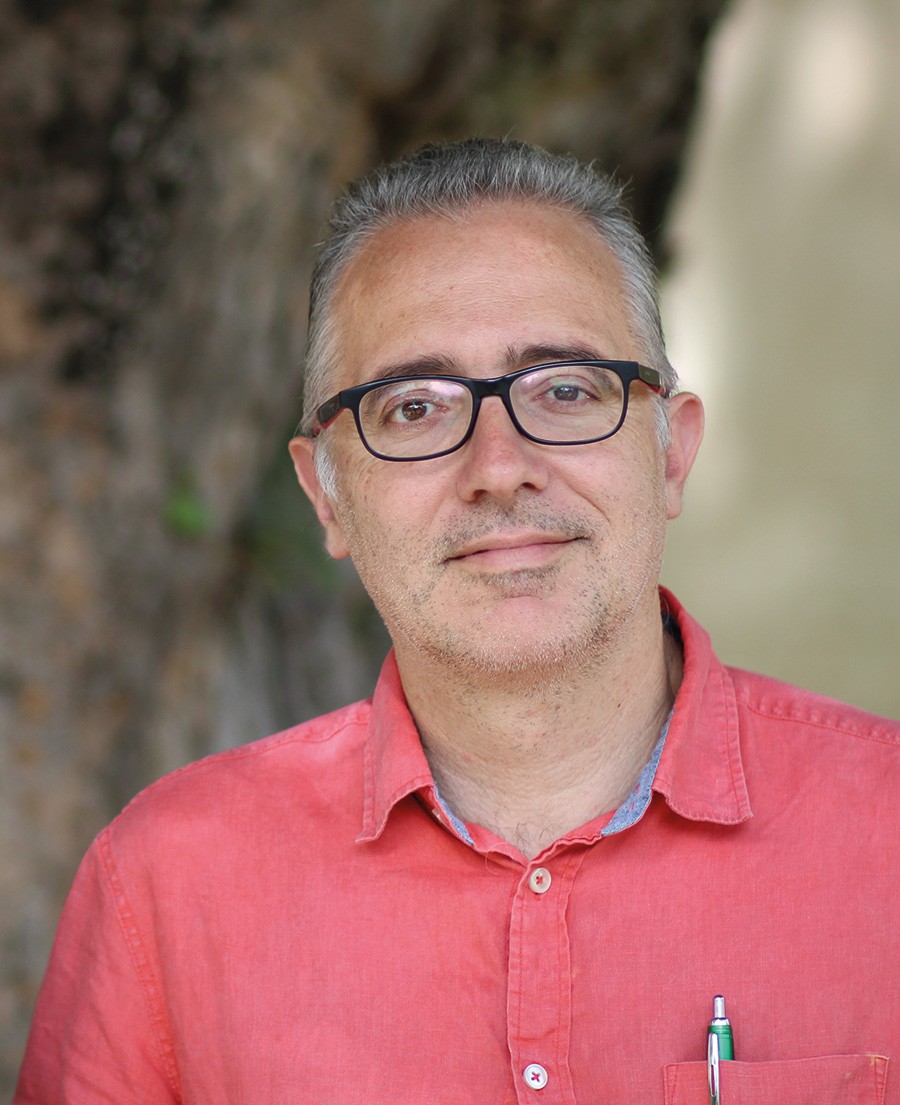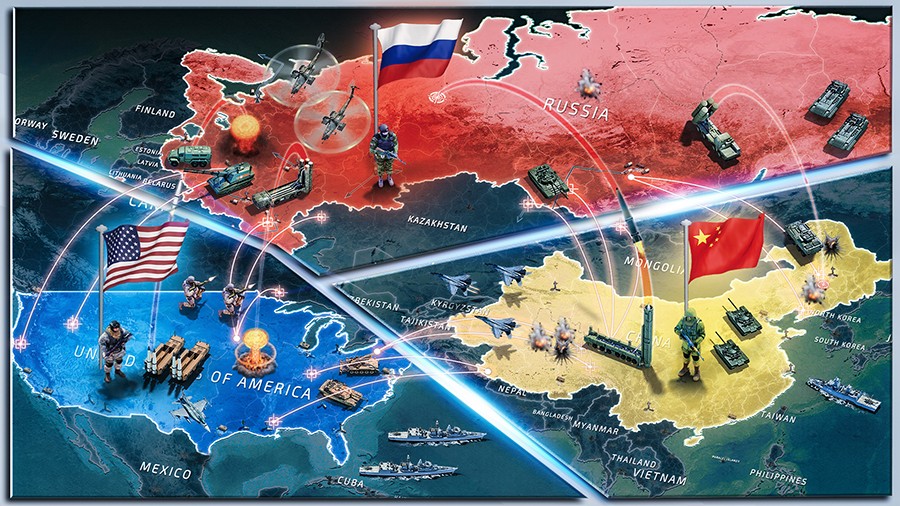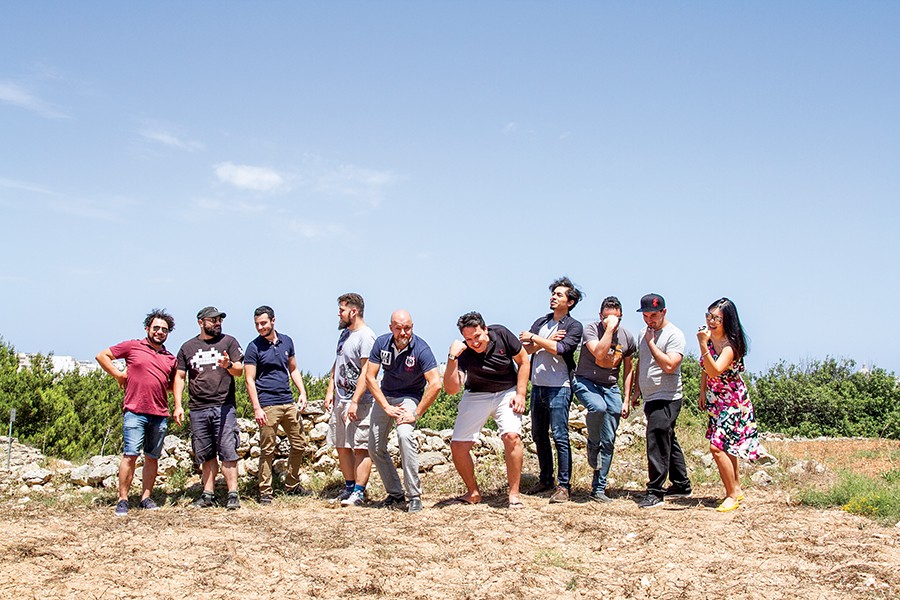You can’t watch Blue Planet and not feel a pang of guilt for the plastic straw in your drink. But what does it truly take to mobilise people and encourage more sustainable behaviour? Kirsty Callan talks to Dr Vincent Caruana.
We’re finally living in a world where environmentalism is a sexy topic. Everywhere you look, it’s vegan-this, plastic-free-that. And it’s wonderful. Public awareness of the impact we are having on our planet is on the rise, and yet, according to Eurostat, Malta still registered the European Union’s highest increase in carbon dioxide emissions from energy use in 2017.Researcher Dr Vincent Caruana (Centre for Environmental Education and Research, University of Malta [UM]), believes the crises we are facing can be summed up in one double challenge: the eradication of poverty and the preservation of the environment. By simplifying the issue, it is turned into a single problem rather than many overwhelming issues, highlighting the interconnectedness of the challenges we face, be they social, economic, or environmental.
Taking Nepal and Bangladesh as examples, both have suffered devastating floods. Some point to large-scale deforestation by logging companies and agricultural businesses, as well as locals using the forests’ resources. Some environmentalists point to the population and blame them, saying that the increasing use of the forest by locals places burdens on the region’s resources, suggesting that their activities are the current major source of environmental problems. But that creates a scenario where the victims of poverty are blamed for trying to alleviate their own poverty. Meanwhile, the reality is that the wealthiest one-fifth of humanity consumes so much more than the rest of the world, leaving the rest hungry.

Who is most to blame for these problems? International institutions such as the United Nations, national governments, transnational corporations, or consumers?
In his classes, Caruana runs his students through a similar thought experiment. Who is most to blame for these problems? International institutions such as the United Nations, national governments, transnational corporations, or consumers? Some argue that it is greedy transnational corporations, out to make a quick buck while ignoring environmental impacts. Some retort, saying that corporations are bound by economy to maximise profits. Others would point their fingers at the consumers who choose to buy from dirty companies instead of the most ethically sourced. ‘Of course, there is no correct answer,’ Caruana states. ‘There is no single solution. We need thousands of solutions working in parallel. Literally. The interconnectedness of it all requires both governments and civil society to commit time and effort.’
GETTING TO THE CRUX
Caruana’s doctoral research identifies the influences that lead people to engage in responsible sustainable behaviour and hones in on ways to sensitise and mobilise sustained civic action.
Caruana is quick to note that there are a plethora of barriers—social, economic, and political—which prevent people moving towards sustainability. What surprised him was that more personal barriers, such as frustration, hopelessness, and dealing with disappointments, also pose a problem. ‘This is a significant point, considering that environmental circles are oft en concerned with reaching out towards the unconverted rather than supporting the converted,’ he explains. In other words, we have to continue to motivate those who are already on the right path to ensure they don’t become demoralised.
Looking to understand how people can take control of processes that affect their lives, Caruana conducted four case studies. Among them were an intentional community in Malta and a Fair-Trade network in Egypt. ‘The power of case studies lies in their ability to reframe and critically challenge core beliefs that are now taken for granted, like how a municipality, church organisation, and a trade organisation ought to act,’ he says.
Caruana believes that education on sustainable development (ESD) lies at the heart of it all—and he is not alone. In 2015, representatives from 193 countries gathered in New York to sign off on the 2030 Agenda for Sustainable Development. At the opening ceremony of the summit, Ban Ki-moon referred to the the Agenda outlined as ‘a to-do list for people and planet’. One goal focuses on education, which includes the aim to ‘ensure all learners acquire knowledge and skills needed to promote sustainable development by 2030.’
In Malta, ESD is established as a cross-curricular theme within the National Curriculum Framework. However, ‘in practice, it is still in the process of being concretely translated across schools and within subjects,’ Caruana notes. He also highlights the need for adults to be educated too, so that this cultural shift can truly happen; however, he is quick to follow up the notion with its own weakness. For years, adult ESD has remained ‘locked within ideologies which have caused many of our contemporary environmental problems.’ We need a complete overhaul of our outlook. Increased emphasis on recycling is a positive; however, what would be better is if we could reduce the amount of waste we are creating in the first place. This is but one example. ‘As long as ESD remains stuck within the same thinking that is creating the double challenge, there can be little progress,’ says Caruana.
CLEARING THE SLATE

Back in 2001, Caruana co-founded Malta’s Fair-Trade movement. ‘Faced with the continuous realisation of an unfair world trade system, and seeing first hand through my voluntary work how such a system creates poverty, my friends and I wanted to be proactive and part of a solution,’ he states. ‘The path forward was not chartered for us. We started off passionately, then with each step, we finally arrived to setting up a fair trade shop and an ongoing educational programme. Rather than complain, we have within us the power to create new solutions.’
This philosophy is at the core of what Caruana is doing now. ‘The current model needs to be challenged, and we do have the power within us to create new ways of thinking. We need a shift from thinking in terms of economic growth to growth in wellbeing,’ he says. Referring to the United Nations Conference on Environment and Development in 1992, Caruana says they had it right. ‘A country’s ability to develop more sustainably depends on the capacity of its people and institutions to understand complex environmental choices.’ We need real leaders, not token ones, who inspire, embrace and support citizens in their actions, and create new spaces for dialogue. ‘Both Civil Society Organisations and local institutions can be a positive force towards sustainable solutions at a local level.’
GETTING TOUGH
This mission is a beastly mountain. The reality is that there are major hurdles standing in the way of a paradigm shift that would see Malta’s people acting more sustainably. Beyond personal barriers, Caruana’s research reveals the vulnerability of local processes: ‘In Malta, a change in government results in a change in priorities (and support).’ Every five years, the system is shaken by an election that brings with it new agendas and philosophies. ‘Stability in environmental issues and processes is essential,’ he notes. Caruana also points out the fragility of civil societies’ human resources.
The solution, Caruana suggests, is ‘to create stronger links between governments, politicians, organisations, and citizens, both for research and to build a network of adult educators.’ This was highlighted in his Fair Trade case study where success was highly dependent on the level and consistency of engagement at both a local level with producers and with their partners in the west.
It is clear that good leadership is key. To help address this issue, he has created an Erasmus+ project called PEERMENT with the aim of coming up with a new model of mentoring and peer-mentoring for ESD. It involves about 20 education specialists as teacher trainers and senior mentors and about 50 teacher mentees.
‘We have to invest in leadership,’ says Caruana. ‘We need to focus on social learning and empowering institutions and organisations to work together and become innovative co-creators of new ways of thinking. In an ever-changing world, this is a challenge for educators to embrace with passion and urgency.’
Circling back to the double challenge, it is clear that no one project will be able to comprehensively solve the issues we are facing as a global society. But ‘we have to stop waiting for permission,’ says Caruana. ‘The beauty of the emerging paradigm lies in the reality that we don’t need permission to change outmoded mind-sets that no longer serve us.’ And this will be crucial in the road ahead.





